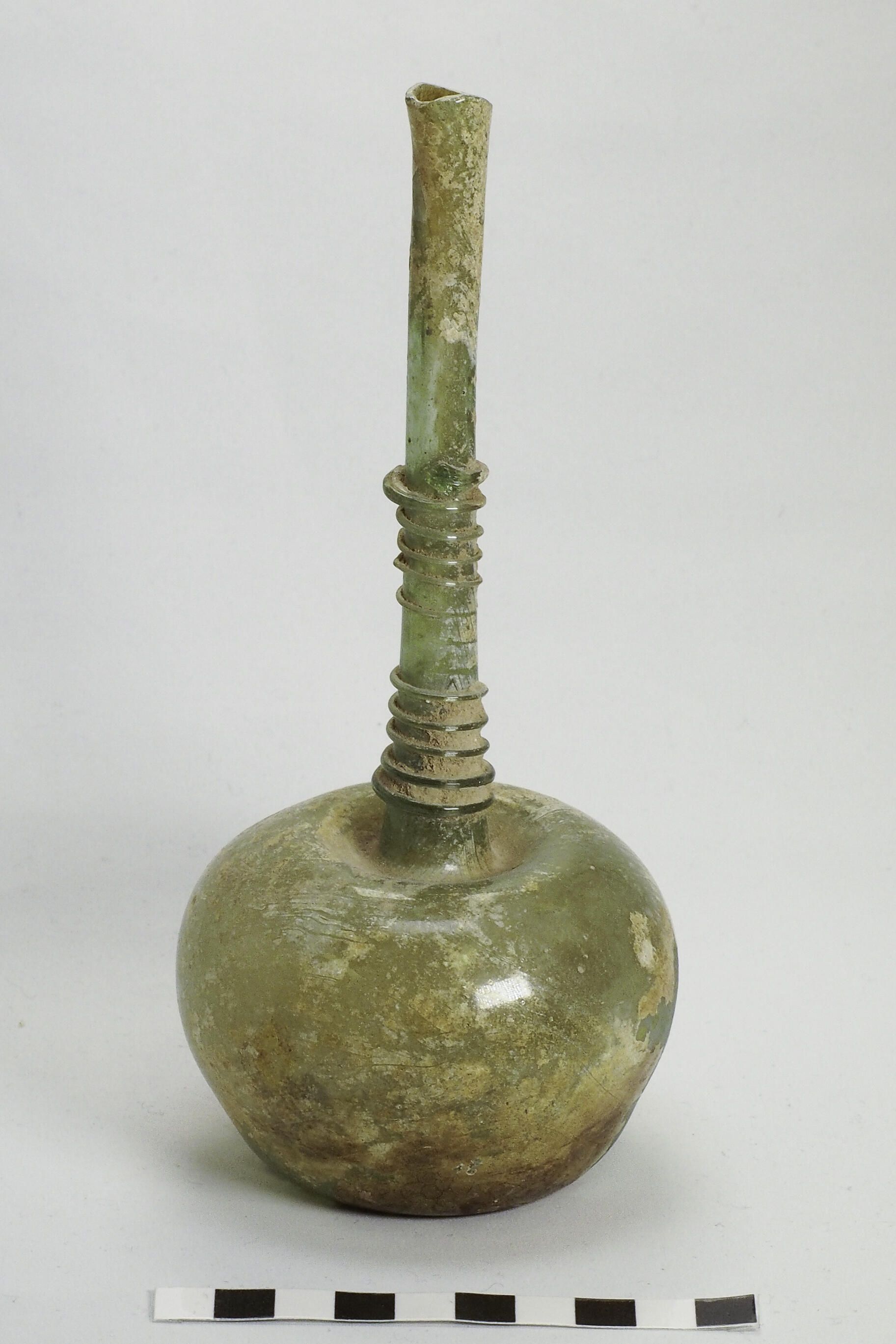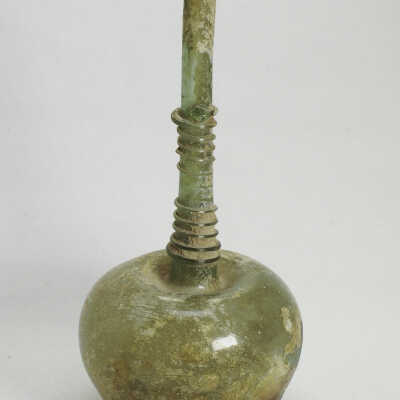Bulbous Islamic Sprinkler
Name/Title
Bulbous Islamic SprinklerEntry/Object ID
11NE-Mi23-161Description
The unworked rim is irregular. The neck is tall, thin, and cylindrical with the old collection label attached. Trailed decoration spirals the neck 13 times; the decoration is worn from spirals six to eight. At the junction of the neck and shoulders is a large depression from which the shoulders round out of. The round shoulders connect to a squat globular body with a concave base and a pontil mark. The vessel is intact with trace encrustation.Use
Perfume VesselContext
Sprinklers held perfumes, oils, and other costly liquids. The neck of a sprinkler vessel is nearly fully closed as a diaphragm with a small central aperture sitting at the base of its neck. The small aperture allows the liquid contents within the bottle to be emptied drop by drop so the user could apply the liquid sparingly. During the Islamic Golden Age and Medieval period, sprinklers most commonly contained rosewater. Rosewater was often used in the context of meals, as the host and their guests would wash their face and hands with rosewater after they had consumed their meal. After the meal, the party would retire to couches where the guests themselves or their servants would use the sprinklers to lightly spray the guest's clothes and faces with the refreshing rosewater.Made/Created
Date made
1000 CE - 1200 CETime Period
Islamic Golden AgeEthnography
Culture/Tribe
Near Eastern - Islamic

